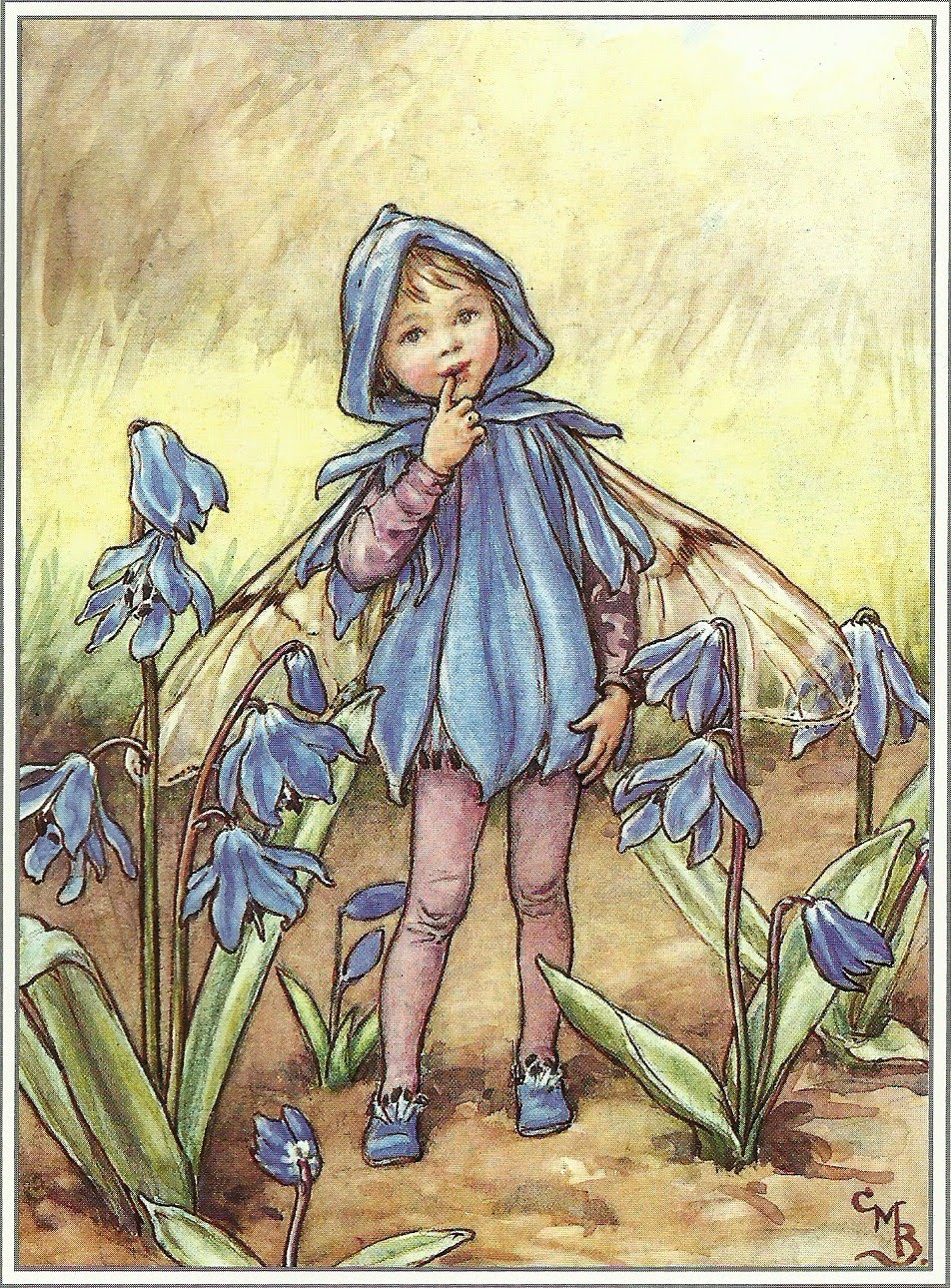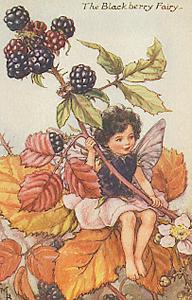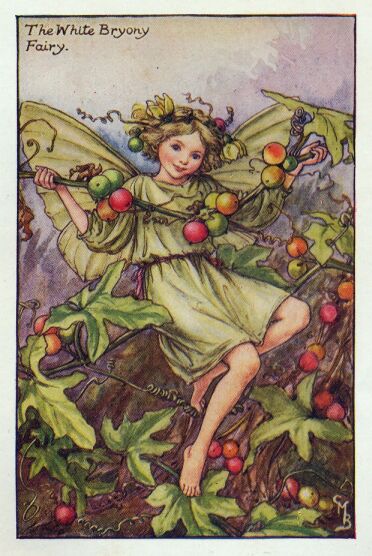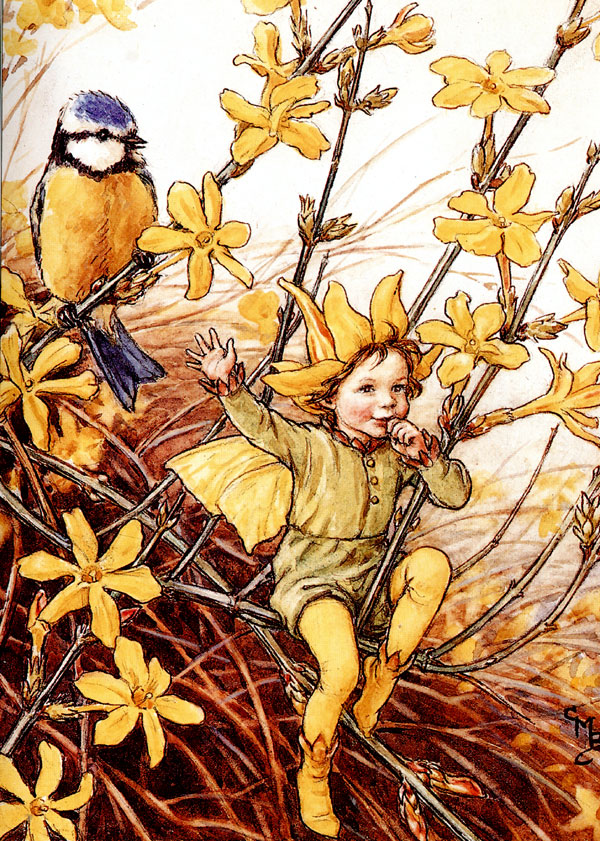 The first thirty years of 20th century seem to have been a golden period for illustration of children's books. We are all aware of the work of E. H. Shepherd, his illustrations the Winnie the Pooh books. But there are others that are well worth looking at. I will feature a couple in the next week or so. First Cicely Mary Barker (h/t Nancy Feeman!). She is in many ways the artist that Gertrude Jeckyll could have been...or perhaps Gertrude Jeckyll is the gardener that Cicely Barker could have been. Just like Jeckyll, Barker grew up in late-Victorian England and went to art school. Both had a love of English gardens, Barker deciding to paint them, and Jeckyll deciding to 'paint' flower beds. If you want to know more about her then there is a charming website Flower Faries with information about her, lots more illustrations and poems and books for sale at
The first thirty years of 20th century seem to have been a golden period for illustration of children's books. We are all aware of the work of E. H. Shepherd, his illustrations the Winnie the Pooh books. But there are others that are well worth looking at. I will feature a couple in the next week or so. First Cicely Mary Barker (h/t Nancy Feeman!). She is in many ways the artist that Gertrude Jeckyll could have been...or perhaps Gertrude Jeckyll is the gardener that Cicely Barker could have been. Just like Jeckyll, Barker grew up in late-Victorian England and went to art school. Both had a love of English gardens, Barker deciding to paint them, and Jeckyll deciding to 'paint' flower beds. If you want to know more about her then there is a charming website Flower Faries with information about her, lots more illustrations and poems and books for sale at
 Barker produced a series of beautiful pen and wash paintings of 'flower fairies' for children's books. Each book would have a short poem and then an illustration. As Nancy Feeman, who brought her to my attention pointed out to me, these would be great for small children today and a great way to teach them to learn to recognise flowers in the garden. So here's the first lesson (which I pass on to you 5 minutes after I learnt it myself): the orchis is genis within the orchid family. Note that Ms. Barker is botanically correct in placing it among the 'family' of orchids.
Barker produced a series of beautiful pen and wash paintings of 'flower fairies' for children's books. Each book would have a short poem and then an illustration. As Nancy Feeman, who brought her to my attention pointed out to me, these would be great for small children today and a great way to teach them to learn to recognise flowers in the garden. So here's the first lesson (which I pass on to you 5 minutes after I learnt it myself): the orchis is genis within the orchid family. Note that Ms. Barker is botanically correct in placing it among the 'family' of orchids.
The Song of the Orchis Fairy
The families of orchids, they are the strangest clan, With sports and twists resembling a bee, or fly, or man; And some are in the hot house, and some in foreign lands, But Early Purple Orchis in English pasture stands.
He loves the grassy hill-top,
he breathes the April air;
He knows the baby rabbits,
he knows the Easter hare,
The nesting of the skylarks,
the bleat of lambkins too, The cowslips, and the rainbow,
the sunshine, and the dew.
The cowslips, and the rainbow,
the sunshine, and the dew.
O orchids of the hot-house,what miles away you are!
O flaming tropic orchids, how far, how very far!
All are exquisitely designed, drawn and painted. Stylistically she said that she loved the Pre-Raphaelites, but in contrast to them, she controls the focus and colour skilfully so that she often gives just enough of a suggestion of background to let us know what is there, with pale, diffuse articulation, but not so much that it detracts from the main points of attention. The Pre-Raphaelites, I feel, tend to overload the painting with colour and detail so that even the unimportant parts of the composition fight for our attention.
My only regret about these is that they seem to be aimed at girls and that's a shame because I would love to find a way for boys to learn about flower varieties as well. I don't think I would have enjoyed this when I was young but I can see that many would.
At the very top we have the Bluebell (scilla) fairy and Blackberry, Bryony, Apple Blossom, the cover of one of her books, Forget-me-not, Rose, Fuchsia and Winter Jasmine.









